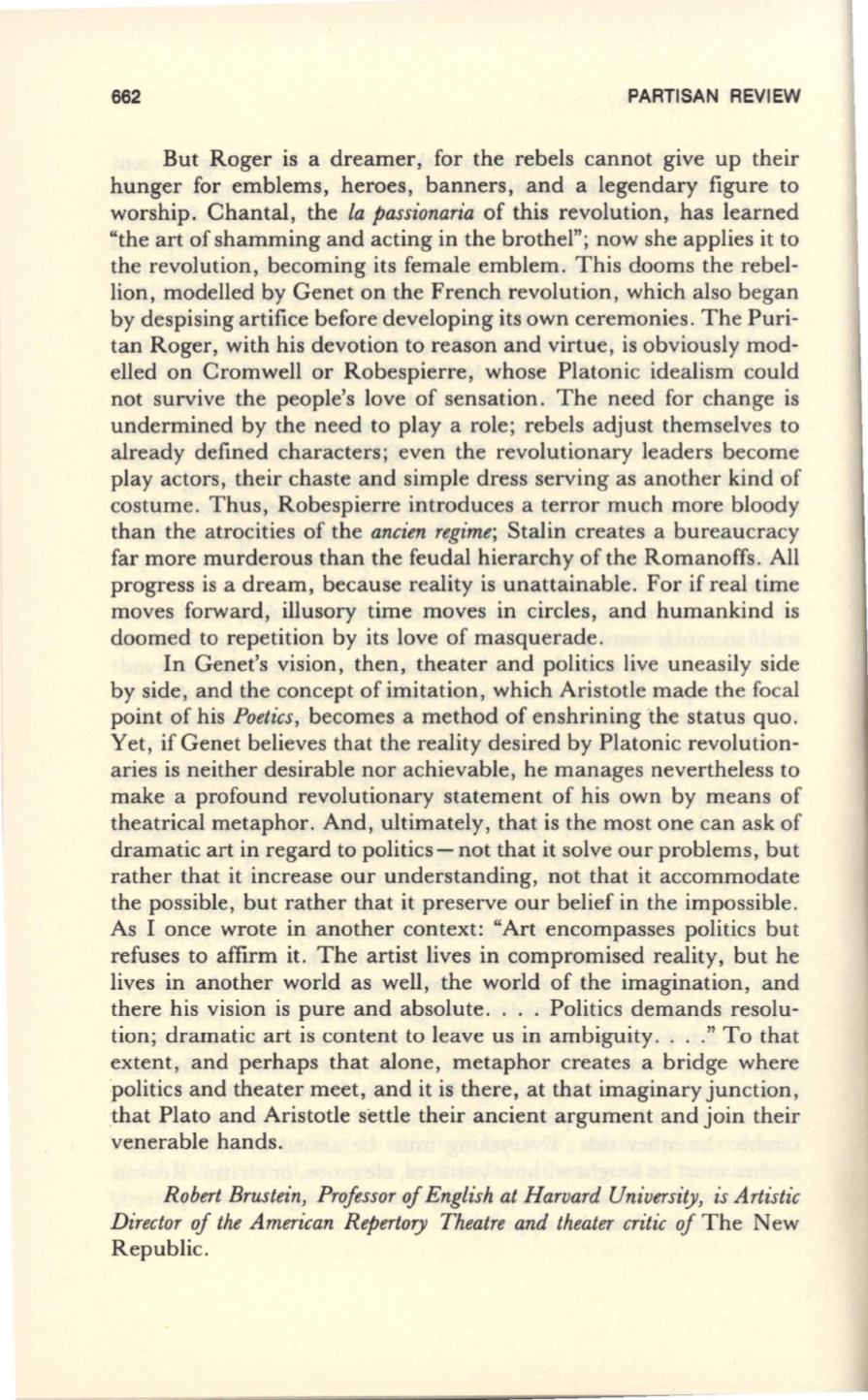
662
PARTISAN REVIEW
But Roger is a dreamer, for the rebels cannot give up their
hunger for emblems, heroes, banners, and a legendary figure to
worship . Chantal, the
la passionaria
of this revolution, has learned
"the art of shamming and acting in the brothel"; now she applies it to
the revolution, becoming its female emblem. This dooms the rebel–
lion , modelled by Genet on the French revolution , which also began
by despising artifice before developing its own ceremonies . The Puri–
tan Roger, with his devotion to reason and virtue, is obviously mod–
elled on Cromwell or Robespierre, whose Platonic idealism could
not survive the people's love of sensation. The need for change is
undermined by the need to play a role; rebels adjust themselves to
already defined characters; even the revolutionary leaders become
play actors, their chaste and simple dress serving as another kind of
costume . Thus, Robespierre introduces a terror much more bloody
than the atrocities of the
ancien regime;
Stalin creates a bureaucracy
far more murderous than the feudal hierarchy of the Romanoffs. All
progress is a dream, because reality is unattainable. For if real time
moves forward, illusory time moves in circles, and humankind is
doomed to repetition by its love of masquerade .
In Genet's vision, then, theater and politics live uneasily side
by side, and the concept of imitation, which Aristotle made the focal
point of his
Poetics,
becomes a method of enshrining the status quo .
Yet, if Genet believes that the reality desired by Platonic revolution–
aries is neither desirable nor achievable, he manages nevertheless to
make a profound revolutionary statement of his own by means of
theatrical metaphor. And, ultimately, that is the most one can ask of
dramatic art in regard to politics- not that it solve our problems, but
rather that it increase our understanding, not that it accommodate
the possible, but rather that it preserve our belief in the impossible .
As I once wrote in another context: "Art encompasses politics but
refuses to affirm it. The artist lives in compromised reality, but he
lives in another world as well, the world of the imagination, and
there his vision is pure and absolute . ... Politics demands resolu–
tion; dramatic art is content to leave us in ambiguity...."To that
extent, and perhaps that alone, metaphor creates a bridge where
politics and theater meet, and it is there, at that imaginary junction,
that Plato and Aristotle settle their ancient argument and join their
venerable hands .
Robert Brustein, Professor of English at Harvard University, is Artistic
Director of the American Repertory Theatre and theater critic of
The New
Republic.


